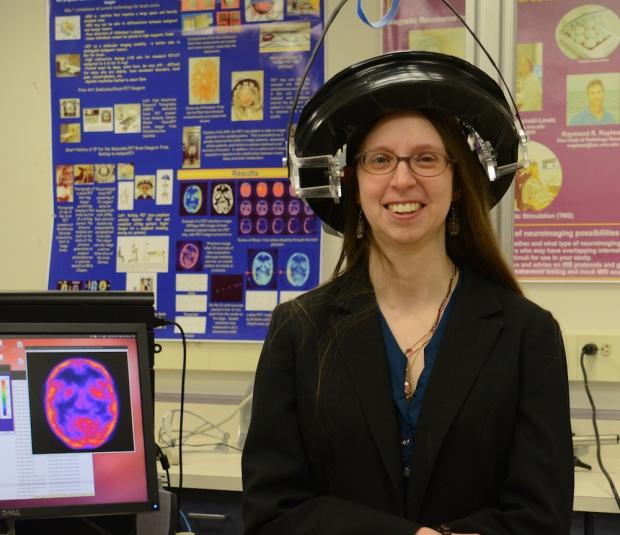A team of scientists is currently developing a portable, wearable brain scanner that has the potential to lead to major breakthroughs in the medical field.
Current positron emission tomography (PET) scanners are large, bulky machines often used to detect cancer and measure the effects of certain cancer treatments.
They also can monitor blood flow to the heart, search for signs of coronary artery disease and much more.
PET scans give doctors and scientists a crucial look at the way our brains function, but the massive device hasn’t been able to reach its full potential.
There is currently no way for patients or test subjects to participate in physical activities while also undergoing a PET scan.
The new wearable version of the device is on the brink of changing that forever.
The helmet-like PET scanners are still very bulky, but they are portable enough to allow subjects to be active while wearing it.
“Every social experiment that has been done [in a brain scanner] is an artificially contrived experiment,” said Julie Brefczynski-Lewis, a neuroscientist at West Virginia University and one of the scientists leading the project, according to Live Science. “Here, you actually see what people are doing when they’re embarrassed, when they’re laughing, when they’re crying.”
That, researchers believe, could allow them to garner a better understanding of healthy brain functions and even provide more knowledge about neurological disorders like dementia, stroke and depression.
The possibilities of the wearable brain scanner concept, which was patented by Stan Majewski, got a lot of attention in the science community.
Brefczynski-Lewis and others then came together and teamed up with Majewski to start working on a prototype.
Building a wearable brain scanner is an expensive process, but funding for the project was made possible through the president’s BRAIN (Brain Research through Advancing Innovative Neurotechnologies) Initiative.
The National Institutes of Health awarded the research team $1.5 million through the initiative.
Some of the new possibilities with such a device would be the ability of researchers to monitor the brain of an autistic person in a social situation or monitor a stroke patient’s brain during rehab exercises.
Early testing with the prototype revealed that it is working efficiently, but not producing the type of quality results the researchers would want it to.
Studies on a “fake brain” revealed that while the device worked, the images it provided were fuzzier than they would be on the typical PET images.
As the team continues to try and improve the scanner’s results, the wearable scanners could make their medical debut soon.

